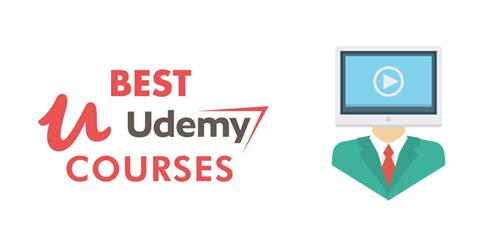Please, rate the engine Author: warezcrackfull on 31-03-2024, 18:54, Views: 0
Respected Sites
Survey
Ads
Warezcrackfull.com » Tutorial » Diodes and their Applications Theory (Part 1)
Diodes and their Applications Theory (Part 1)

Free Download Diodes and their Applications Theory (Part 1)
Published 3/2024
Created by Siri Subrahmanyam Vadlamani
MP4 | Video: h264, 1280x720 | Audio: AAC, 44.1 KHz, 2 Ch
Genre: eLearning | Language: English | Duration: 88 Lectures ( 3h 53m ) | Size: 1.24 GB
Master the skill of designing analog and power circuits using diodes!
What you'll learn:
Structure of an Atom, Periodic Table, Electrical Properties of Materials, Valence and Conduction Bands, Semiconductor Currents, Doping, PN Junction, Jargons
I-V Characteristics of Ideal and Practical Diodes, DC, AC and Average Resistances of the diodes, Forward, Reverse and Breakdown Regions of Operation
Diode Modeling, Exponential Model, Necessity for Quick Analysis, Constant Voltage Model, Ideal Diode Model, Piece-wise Linear Model, Small Signal Model
Zener Diode and its Modeling, Characteristics and Applications
Forward Voltage, Maximum DC Reverse Voltage, Peak Inverse Voltage, Peak Reverse Repetitive Voltage, Peak Non-Repetitive Reverse Voltage, Isolation Voltage
Maximum Average Forward Current, RMS Forward Current, Repetitive Forward Surge Current, Non-Repetitive Forward Surge Current, Maximum Reverse Leakage Current
Double Pulse Test, Forward Recovery Characteristics and Reverse Recovery Characteristics
Storage Temperature, Lead Temperature, Diode Thermal Model, Junction Temperature, Power Dissipation, SOA, Transient Thermal Impedance, Avalanche Energy Rating
Junction Capacitances, Series Inductance, Maximum Mounting Torque, I2t Limit, Diode Power Loss Calculations
Recovery Diodes, Schottky Diodes, Photo Diodes, LEDs, Tunnel Diodes, Varactor Diodes, TVS Diodes, SiC Diodes, SiGe Diodes, PiN Diodes
Through-hole and SMD Packages, Wave Soldering and Reflow Soldering Techniques
Anatomy of Datasheet, Front Page, Absolute Maximum Ratings, Thermal and Electrical Characteristics, Typical Plots, Packaging and Ordering Data, Mechanical Data
Applications of Diodes, Diode Testing Methods, Interview Questions based on my personal experience
Requirements:
Basic Understanding of Electrical Engineering Principles - Voltage, Current, Power, etc.
Circuit Analysis using KCL, KVL, Linear Circuits
Basics of Algebra
Genuine Interest in the Subject Matter
Description:
Hello there!Welcome to my course titled "Diodes and their Applications: Theory (Part 1)"This comprehensive Four-hour course optimizes learning by offering a detailed understanding of diodes and their associated circuits. By bridging theory and practical applications, students save time by gaining hands-on experience, directly applying concepts to real-world scenarios, and significantly accelerating their learning curve. The course curriculum is designed in such a manner that it builds the subject in a step by step and gradual manner starting from the very basics.The detailed course curriculum is highlighted below:Module 1: Introduction to DiodesThis module establishes all the semiconductor physics concepts necessary to understand diodes better. Topics include the structure of an atom, periodic table, electrical properties of materials, valence and conduction bands, currents in a semiconductor, doping, PN junction, diode jargons, types, and applications of diodes.Module 2: Diode CharacteristicsThis module discusses I-V characteristics, DC resistance of the diode, forward-biased region characteristics, reverse-biased region characteristics, and breakdown region characteristics.Module 3: Modeling the DiodeThis module introduces modeling, including the exponential model, constant voltage drop model, ideal diode model, piece-wise linear model, and small signal model.Module 4: Zener DiodesThis module covers various topics related to Zener diodes, including breakdown region, Zener diode model, and circuit applications.Module 5: Diode Voltage SpecificationsThis module delves into essential voltage parameters crucial for diode selection in applications including forward voltage, maximum DC reverse voltage, peak inverse voltage, peak reverse repetitive voltage, peak non-repetitive reverse voltage, isolation voltageModule 6: Diode Current SpecificationsThis module covers important current specifications for diode applications including maximum average forward current, RMS forward current, repetitive forward surge current, non-repetitive forward surge current, maximum reverse leakage currentModule 7: Dynamic CharacteristicsThis module delves into the intricate switching behaviors of diodes, focusing on detailed analyses of both forward and reverse recovery characteristics along with their detailed loss calculations with waveforms.Module 8: Thermal ConsiderationsThis module explores essential thermal metrics, specifications, and safety considerations related to diodes, covering topics such as the safe operating area, diode thermal model, transient thermal impedance, and the concept of avalanche energy.Module 9: Miscellaneous TopicsThis module covers essential diode parameters commonly found in datasheets and provides detailed insights into diode power losses.Module 10: Types of DiodesThis module provides detailed insights into various types of diodes including recovery diodes, Schottky diodes, photo diodes, LEDs, tunnel diodes, varactor diodes, TVS diodes, SiC diodes, SiGe diodes, PiN diodesModule 11: Packaging and SolderingThis module covers diode packaging and soldering techniques, exploring different diode package types and common soldering methods (Wave soldering, Reflow soldering, and Hand soldering) employed in the industry.Module 12: Understanding Datasheet ParametersThis module delves into comprehending datasheet parameters by systematically exploring each section of the diode datasheet.Module 13: Applications, Testing Methods, and Interview QuestionsThis module covers a range of diode applications, practical testing methods, and insightful interview questions drawn from my personal experience.Module 14: ConclusionThis module concludes our journey together, along with many diode related references.Throughout this course, you will build a strong and in-depth theoretical foundation about various diodes and their operation.We hope you find this course engaging and enriching!Let's get started on this exciting learning journey!
Who this course is for:
Engineering students pursuing their bachelor's or master's degree
Electronics designers, analog circuit design and application engineers
Industry professionals working on signal conditioning circuits, rectifiers, power conversion circuits, etc.
All power electronics and circuit design enthusiasts
Anyone preparing for power electronics interviews, and seeking a quick revision
Homepagehttps://www.udemy.com/course/peds-diodes1/
Buy Premium From My Links To Get Resumable Support,Max Speed & Support Me
Rapidgator
xmddo.Diodes.and.their.Applications.Theory.Part.1.part2.rar.html
xmddo.Diodes.and.their.Applications.Theory.Part.1.part1.rar.html
Uploadgig
xmddo.Diodes.and.their.Applications.Theory.Part.1.part1.rar
xmddo.Diodes.and.their.Applications.Theory.Part.1.part2.rar
NitroFlare
xmddo.Diodes.and.their.Applications.Theory.Part.1.part2.rar
xmddo.Diodes.and.their.Applications.Theory.Part.1.part1.rar
Fikper
xmddo.Diodes.and.their.Applications.Theory.Part.1.part2.rar.html
xmddo.Diodes.and.their.Applications.Theory.Part.1.part1.rar.htmlNo Password - Links are InterchangeableComments
Archived warez downloads
February 2025 (1778)
January 2025 (2316)
December 2024 (3717)
November 2024 (6839)
October 2024 (2594)
September 2024 (5333)
Friends
All rights by WarezCrackFull.com 2024 Sitemap
